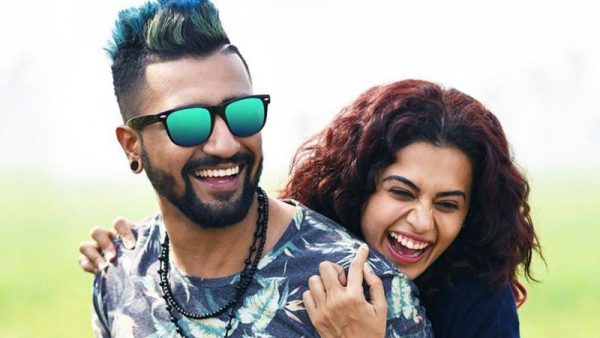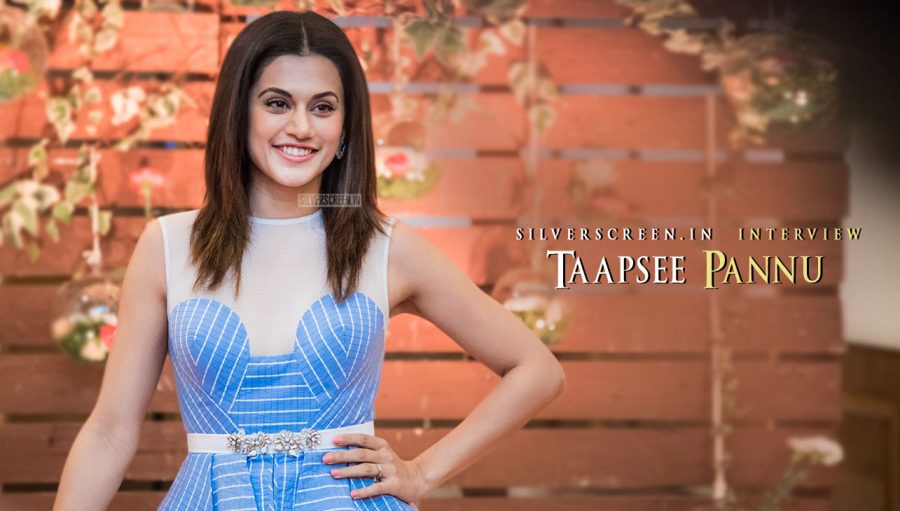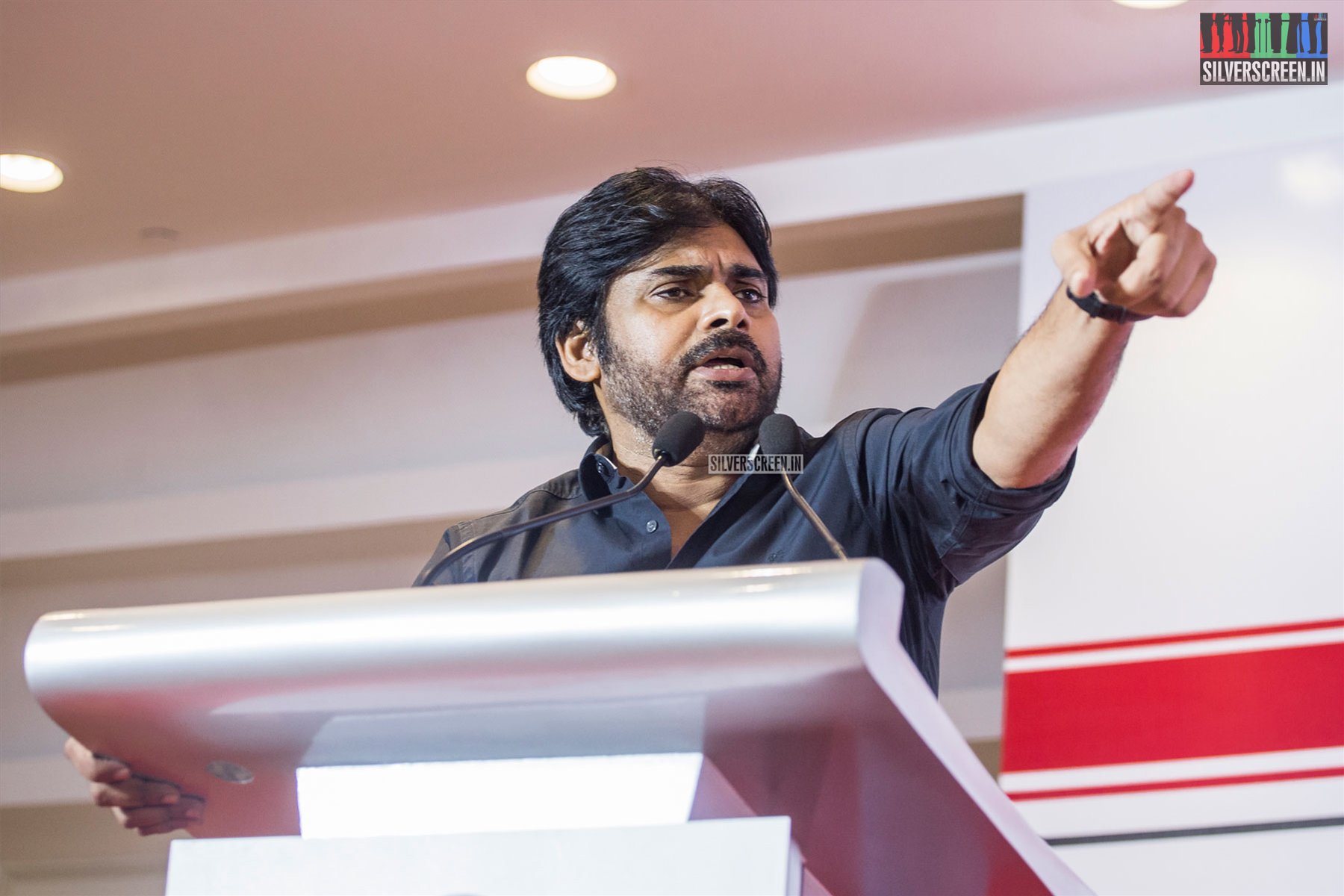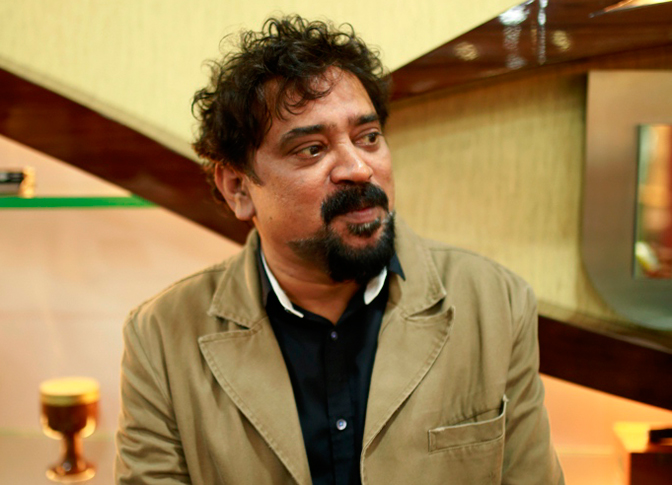From an engineer and model to finally an actress, Taapsee Pannu joins the list of others who have chosen the arc lights over academics. Her debut film Aadukalam bagged six National Awards in 2011, and after a slew of Tamil and Telugu films, she discovered her trump card again in the Bollywood hit Pink (2016). Today, she’s the go-to person for roles that veer away from the norm, for characters that need to be internalised and played with sympathy
It takes spunk to be Taapsee Pannu. Last week, as the director and actors of Manmarziyaan woke up to news that distributor Eros International had voluntarily edited out portions that some sections of the Sikh community had objected to after the film was cleared by the Censor Board, lead actress Taapsee Pannu unleashed a tweet storm. Picking holes in every argument that sought to tell women how to think and behave, she held her own admirably, throwing in some humour too.
Yes sir. Totally Vehli, especially this year. Toh kab au aapka protest join karne? I think the job of being a part of these protest group guarantees a more stable career than films. Time n place please ? https://t.co/UPJlkjWeYZ
— taapsee pannu (@taapsee) September 20, 2018
I am sure this edit will assure that no Sikh will ever Smoke and no woman will ever think about ANYONE else while getting married in a Gurudwara. THIS surely will make Waheguru proud and assures that MY religion is the purest,most righteous and peaceful ! #Proud ????????
— taapsee pannu (@taapsee) September 20, 2018
In many ways, she was Rumi of Manmarziyaan that day, meeting head-on all that came her way without flinching. Little wonder both Rumi and Taapsee won new fans that weekend. For, it’s not often that you find someone consistently taking a stand or calling out injustice. She’s the kind of person who can tell an interviewer like Anupama Chopra to her face: “Let’s gracefully accept nepotism is there. It took me five years to sit across a table with you for this interview… And there are so many others who get this honour probably even before their first film.” She’s also unapologetic about her choices, or what she says. At the India Today Mind Rocks 2018 Delhi, she asked, “Why did you [the audience] make Sanju a Rs 300 crore film? The kind of lifestyle that person [Sanjay Dutt] had — he’s a total anti-hero if you think of it in the conventional way. It was up to the audience to make him the hero or to make Sanju a 300-crore film.”
The engineer-turned-actress happily takes digs at herself, like she famously did a year ago at East India Comedy (EIC) where she spoke about how unfit she was for the industry and went on to narrate how she reacted when a coconut was thrown at her midriff during a sensuous song in her debut Telugu film. Predictably, there was a hue and cry, and she later said she was merely making fun of what happened to her and not taking potshots at veteran director K Raghavendra Rao.
Being an outsider and also brutally honest don’t really go well together. But, Taapsee has made it work since her film debut in the National Awards-winning Aadukalam. The journey surely could not have been easy. “Yes it was not, and it should not be too. If things become too easy, you become complacent. Even now, there really is no sense of security. For all the love I’ve received for Manmarziyan, I don’t feel it is a secure tomorrow. I have to go out and try and outdo myself in my next film. They said Mulk was my best work, and then Manmarziyan happened. I have to be sure they say that for my next film too; I always have the fear of being sent back.”
But, what Taapsee does acknowledge is that she’s always been given the scope to perform. “It helps that I’ve never gotten to do the simple, conventional things. I’ve never got easy parts. That very thing was my biggest weapon to create my space. It got me attention too,” she says.
Attention has come in other not-so-enviable ways too. She’s been the object of trolls’ affection for many things she has said. Surely, she fears repercussions in an industry that does not often take kindly to the truth? “I have chosen to be honest and true to myself, and that is a decision I took a long while ago. I stand by it, it gives me a unique identity, and I don’t ever have to try to be like someone else. Since I have made that choice, in the bargain, I might get interpreted in different ways. But I make sure I don’t hurt anyone directly, or target someone. I speak what is in my heart and mind without worrying about my ‘image’. Because, if I lived for the image, I have to remind myself every day what the image would do, and live a life very different from what I want. It’s deeply claustrophobic to live someone else’s life, and you might well be the person you are. You hope that somewhere down the line, people will connect to you. And, those who don’t were probably never your audience,” she says.

Manmarziyan’s Rumi is an athlete. She bounds up the steps to meet her lover Vicky, and runs from her honeymoon cottage in Kashmir to come to terms with her marriage to the sedate Robbie. And, when Taapsee runs, she really runs. Even in the recent short film Nitishastra, where she plays a martial arts instructor who has to take on her brother over her student’s assault, there’s a naturalness in the way she moves. In Soorma, she played hockey on screen, and none of it looked forced. “I’ve always been a physically active person, engaged in some sport. Outdoor activities have always been a part of my life. Like I always say, age seems to suit me. The older I’ve gotten, the better I feel about myself, my body and my look. I love to keep fit, and have never been told to lose weight so far. Sports keeps me real and rooted and I play squash whenever I can. A sportsperson’s mental balance is so hard to achieve. That’s why I always say that sports stars are the real heroes.”
While Taapsee has been part of quite a few landmark characters, Rumi is a rare creation. She’s unapologetic, has warts and is selfish, but still lovable. She loves fiercely but when she feels let down by him, keeps her promise to her family and agrees to marry another. She voluntarily sleeps with her husband, and then texts her lover that she did. She’s the sort that plays with fire. She laughs with gusto and cries with abandon. She openly admits she’s manipulative. She expects others to understand her, little wondering if it is difficult for them. On the surface, while all that is apparent is Rumi’s zest and proclivity to defy rules, she’s also a deep, layered number. How easy was it for Taapsee to decipher and visualise her? “I was one of the few who judged Rumi when I heard the script. We have been conditioned for so many years that a female character can either be black or white – the villain and vamp or the sacrificing idol who thinks of all but herself. I had to convince myself I could play her. That there is nothing wrong in thinking of your happiness; for, only when you are happy can you spread happiness to those around you. Today’s women know the value of their own happiness. Despite everything, Rumi is lovable and endearing, because she is so real. We see a part of ourselves in her. We have done something similar, just that it is difficult for us to own it up. She preaches what she practices. She knows she is wrong and she is she honest. That’s the reason the audience connected with her,” says Taapsee.
Considering Taapsee’s background and progressiveness, did it shock her that she judged Rumi? “I was surprised about my inner conditioning that made me judge Rumi. When writer Kanika Dhillon narrated the story, I did not jump off the sofa like she expected me to, like others who heard the story had. Later, I told Kanika I am a black and white person and that Rumi was confused, manipulative, selfish. So, as a girl, will I connect with her, like her? Kanika told me the challenge was to make the audience love and connect with her, despite her character traits. That became the selling point for me. When I went on the sets, I was fully convinced.”
Taapsee is now at a stage where she seems to be picking winners, both in terms of script and commercial viability. Pink, Mulk and Manmarziyan have changed the narrative when it comes to issues such as consent, patriotism and choice. Did she foresee this kind of reach? “I knew they would connect deeply with the audience, but did not know the magnitude, be it in collections or audience response. I listen to a script like a member of the normal Indian audience, and these films spoke to me. I was instantly sold, and knew they would be discussed for long.”
A character trait particular to Taapsee on the big screen is the vulnerable-strong look specific to her. Be it Pink, Naam Shabana, Nitishastra or Manmarziyan, the face is utterly helpless in some scenes, but not devoid of a certain determination. “That was not planned,” she laughs. “Yes, I do live an honest, fearless life and these two qualities come hand in hand. My honesty lends me vulnerability and the fearlessness makes it look strong.”
A clutch of sensitively-made films has allowed Taapsee access to thinking, sensitive filmmakers. In a way, has the outsider become the insider, and a privileged one at that? “Not really, But, all the praises I get, I owe to my directors. I am not a trained actor, but I can be moulded like wet clay. I am a director’s actor, and if you want to say I don’t know my job and that the directors have to get the job done, then so be it. That’s why I keep repeating most of my directors. Soon, you’ll hear about projects with Anubhav Sinha (Mulk), Anurag Kashyap (Manmarziyan) and Sujay Ghosh (the upcoming Badla). It’s a ripple effect of what I’m doing,” she says.
That said, Taapsee is a good student. “I don’t come with any hang-ups. I don’t know the tricks and nuances of trained actors, and am not as experienced as brilliant actors can be. I come with the feeling that I don’t know this job and that I will learn on the sets. This is why I voluntarily choose different projects. So, every film is a new territory, and you start from scratch. That keeps me alive, makes me wants to wake up every morning and go somewhere. If I’m not as excited, it will show on screen,” she explains.
Working this way has also made her the go-to person for unusual scripts. She smiles. “Today, when there is an unconventional role, one person who will jump in is me. At the same time, I don’t think I will do a film I don’t relate to. I don’t understand European or Indie cinema, the kind that the Western world appreciate. I’m the regular audience that looks for good commercial content that can hold my interest for two hours. The audience pays Rs. 500 and spends three hours of their life that will never come back. They have access to Netflix and Amazon Prime. What are you giving them on par with that? What are you creating that will bring them to the theatres?”
For someone who thinks, is the choice between wanting to be an actor or star an easy one to make? Almost everyone out there claims they want to be actors first and stars later. “Anyone who says I don’t want to be a star has a wrong definition of stardom or does not want to accept the truth. My definition of stardom is the capability to pull in the audience into theatres. Command an audience that blindly bets money that Taapsee’s film is worth spending time on. The day I feel the audience is giving me the all-important weekend collection, I will feel I have arrived. So yes, I want to be a star too.”
Taapsee has spoken about how she will continue to make films such as Judwaa 2 till the audience learns to make films such as Pink and Naam Shabana work at the box office. Is that an easy choice to make for an actress who says she chooses films based on the average Indian audience, but does not sound average herself? Do Taapsee the individual and the actress think differently? “If there is something misogynistic, as an audience I won’t be able to see it. Speaking of Judwaa 2, all I ask is why do you consider the character the hero? Who told you he’s the hero? We are not saying this is a perfect character. Why do you think because Varun Dhawan is perfect in your head, his character in the film is the perfect hero material? My character actually laughs that he’s such a moron. That’s how I see it. I am against any kind of stalking or forcing oneself upon a character. There must be consent.”
After a brief gap, Taapsee returned to the Telugu industry in August with Neevevaro, a remake of the Tamil Adhe Kangal, where she plays a girl who delights in conning people and does not hesitate to hurt. Next up is a straight Tamil film that is to be announced soon. “I won’t be able to do as much as before, because I now have another language in my kitty where I am getting roles I am excited about. But, I will do at least one film a year in the South. After Kanchana 2, I am doing a straight Tamil film soon. Before that, I will wrap up the patchwork for Badla.”
Recommended
From the quiet Irene of Aadukalam to the deeply self-assured Rumi of Manmarziyaan, Taapsee has come a long way as a professional. As a person, she has nearly stayed the same, though. During the same EIC show, she was teased for never ignoring calls from Nature’s Basket, which brings home her vegetables, and for cleaning her home. She likes to engage with followers on social media, encourages debates and stays as real as she can. But, she needs her space too. A holiday to a foreign destination where “no one recognises” her is on the cards. As are performances that see her pitting her skills against the best in the industry. And, somewhere between this fierce need to not be seen and the fervent need to be seen on the big screen is the actress who has defied expectation and carved a path of her very own.
*****
The Taapsee Pannu interview is a Silverscreen exclusive.




